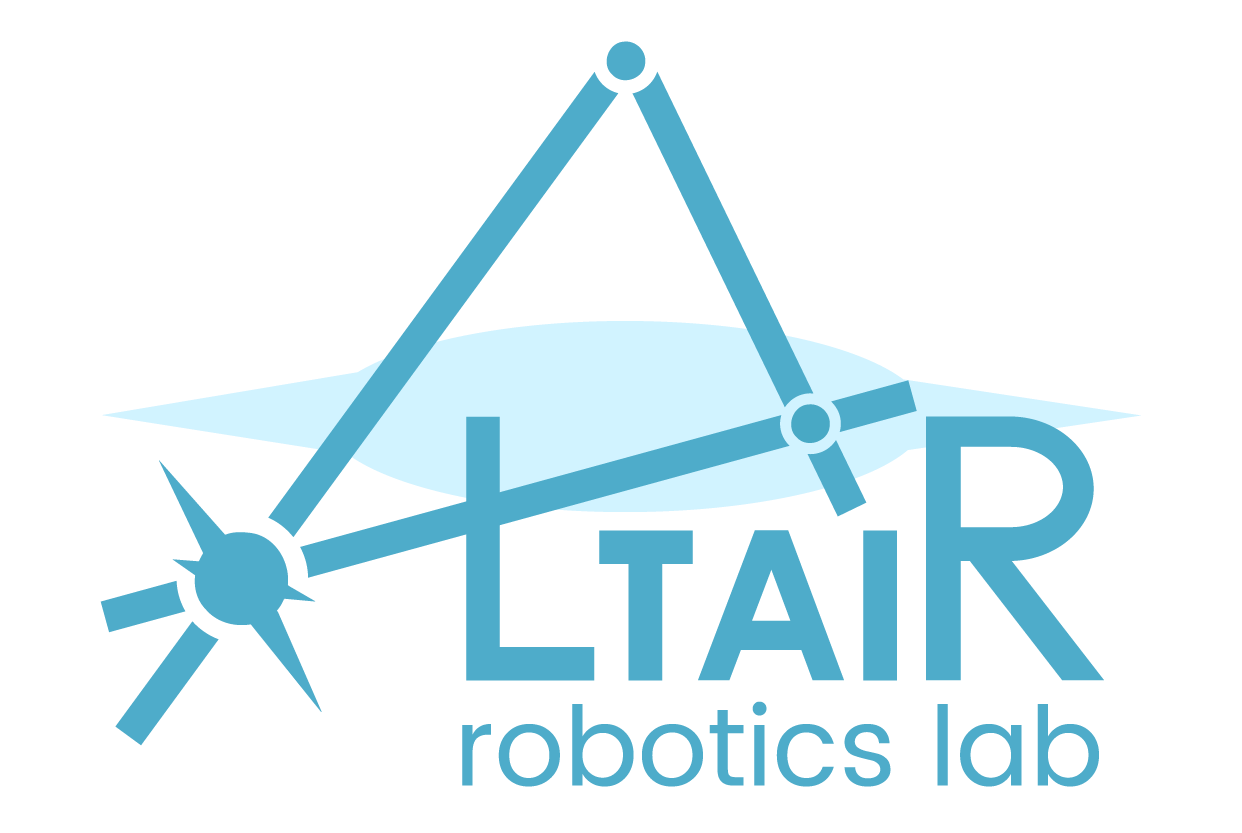ALTAIR ROBOTICS LAB
thesis
Open positions
Last update: 29/07/2019
Contact, Information and Applications:
Professor Paolo Fiorini – paolo.fiorini@univr.it
Positions within the project ARS
ARS – Autonomous Robotic Surgery is funded by the European Research Council Advanced Research grant (ERC-ADG) that addresses the science and engineering of autonomous robots in surgery. The project aims at developing the various elements of a cognitive surgical robot that will demonstrate simple surgical interventions on mannequins using the da Vinci Research Kit (dVRK) available in the laboratory.
Two full-time Post-Doc positions (1-year renewable contract)
The specific research topics are:
a. Real time reasoning and situation awareness in robotic surgery.
This research will investigate the structure and the actual implementation of a real-time reasoning system that analyzes the data collected during simulated and real robotic interventions. The system should be able to compute the conditions determining the evolution of the surgical intervention, as well as identifying possible risk situations related to the patient conditions.
b. Modeling and real time simulation of deformable anatomical environments.
This research will analyze the best bio-mechanical model to represent a deformable organ, identify the most appropriate software formulation to implement the model and integrate the model into real-time anatomical simulator under development within the ARS project.
Applicants should submit the following documents:
• A short CV. Only CVs with considerable scientific achievements will be considered.
Candidates should have an excellent track record of research; they should demonstrate the ability to grow into scientific/technological leadership roles.
• A statement on how the research topics will be addressed.
• A letter of presentation.
• Contacts of two supervisors/mentors who could act as references.
The positions will start as soon as possible.
Two Expressions of Interest for the Marie Skłodowska-Curie Actions Individual Fellowships (MSCAIF)
Researchers for these positions will be working, if funded, on the ARS project and on a smart exoskeleton for the upper body, to support people affected by muscular weakness.
a. To establish the fundaments of intelligent surgical instruments
These instruments will be endowed with sensing device and strategies that will be capable to autonomously perform the measurements required to achieve situation awareness and acquire unprecedented level of detail about its surroundings. Aim of this research is the investigation of the proper design of soft and hard instruments with embedded sensors and intelligence. New paradigms for sensor integration will be taken into consideration during the design for guaranteeing a proper fabrication compatible with the working conditions. The design should incorporate adequate intra-operative sensing technologies (FBG, OCT, EM, US) and proper actuation schemes. The optimal sensor/actuation combination will be implemented in dedicated surgical robotic systems by specific integration procedure with the final aim to enhance the selfawareness of the whole robotic system and optimizing application safety. This new generation of self-aware instruments will be tested during in ex-vivo and in-vitro experiments. Through their proprioceptive capabilities these instruments can exceedingly put anatomical information into context, improve the operator’s awareness of the surgical site, and increasing the intuitiveness and the efficiency of the intervention.
b. Upper Limb Exoskeleton Control for ADL Assistance
This research aims at developing advanced sEMG decoding and exoskeleton control algorithms considering one or more of the following specific topics:
i. Advanced sEMG decoding algorithms with a specific focus on robustness to sensor misplacements and self-calibration.
ii. Advanced assistive algorithms working at the interface between sEMG decoding and exoskeleton control.
iii. Advanced force and impedance control of series elastic systems based on low cost implementations and with specific focus on identification and estimation techniques to compensate for system uncertainties.
iv. Mechatronic design of mobility support systems (e.g. exoskeletons) to help patients with reduced physical mobility exploiting low-cost materials (e.g. plastic materials) and components (low-end sensors and actuators). See the concept of Series Elastic Link which has been recently introduced by our group.
The selected candidate will be invited to submit a MSCA IF proposal together with Prof. Fiorini, supervisor of the proposal. The involvement of the selected candidate in the proposal writing process will provide ample opportunity to tailor the proposal to his / her research interests. A successful application will result in a one-year, or a two-year appointment.
Research Field: Robotics, Automation and Computer Science Engineering
Career Stage: Experienced researcher or 4-10 yrs (Post-Doc)
Research Profiles: Recognized Researcher (R2
contact form
write us!
ALTAIR Lab is always open to new ideas and collaborations. Send us a message and we will answer you soon.
